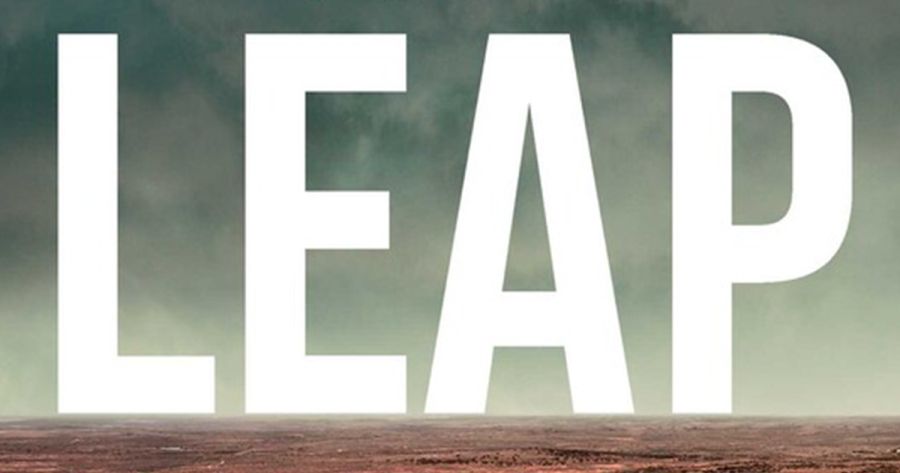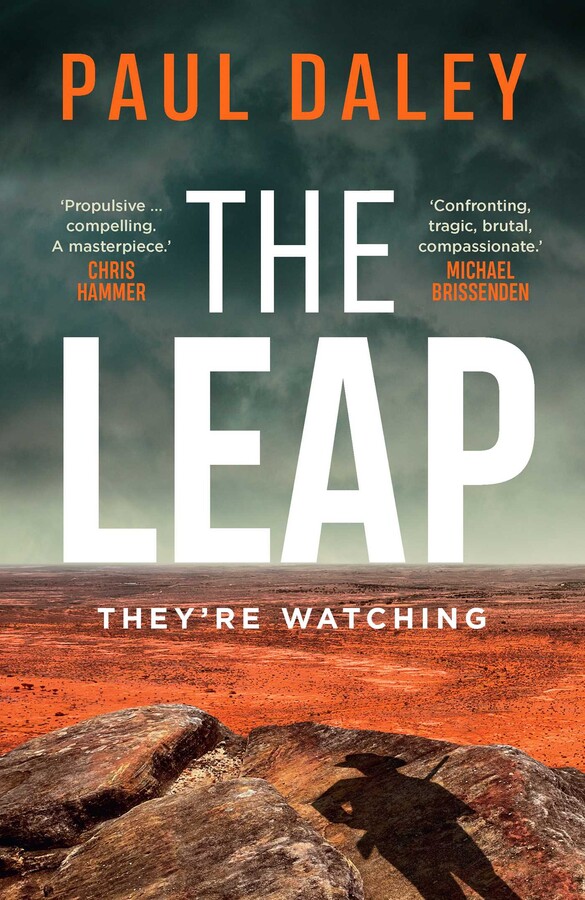
- Free Article: No
- Contents Category: Fiction
- Review Article: Yes
- Article Title: Outback noir
- Article Subtitle: In the shadow of the Voice referendum
- Online Only: No
- Custom Highlight Text:
Who should we celebrate, or perhaps fault, for the publishing success of books labelled ‘outback noir’ in Australia over the past decade? Our starting point could be Jane Harper’s bestselling book The Dry (2016). The cornerstone of the genre for the author of The Leap, Paul Daley, is the seminal Kenneth Cook novel, Wake in Fright, first published in 1961. The longevity of the novel owes much to the 1971 feature film of the same name, directed by Ted Kotcheff, remembered for the infamous filming of a visceral Kangaroo shoot and the actor Donald Pleasence playing a most unpleasant lech. The Wolf Creek film franchise also deserves an honourable mention, along with its larrikin psychopathic killer, Mick Taylor, if not the real-life mass murderer, Ivan Milat himself.
- Book 1 Title: The Leap
- Book 1 Biblio: Summit Books, $34.99 pb, 336 pp
- Book 1 Cover Small (400 x 600):

- Book 1 Cover (800 x 1200):

- Book 1 Readings Link: https://www.readings.com.au/product/9781761632525/the-leap--paul-daley--2025--9781761632525#rac:jokjjzr6ly9m
Daley has vast experience as a novelist and journalist. His writing for The Guardian newspaper in particular highlights his concerns with the complexities and hypocrisy of Australian male identity, colonial violence, and the waving of flags as a poor example of nation building. He is a sharp critic of the myth of a ‘fair go’ and yet has written poignantly of his love of place and people.
Essentially, Daley, in both his fiction and non-fiction, wants White Australia to take responsibility for its violence and, in doing so, work maturely towards an inclusive society. It is not surprising to read that he was in the middle of writing a different book altogether when the proposed Indigenous Voice to Parliament was being debated during 2023. The at times ugly tone of the debate and the ultimate failure of the ‘Yes’ proposition impacted directly on Daley. He has since commented, ‘I dropped what I was doing.’ He then began writing The Leap.
The protagonist of the novel is the aptly (or perhaps unfortunately) named, Benedict Fotheringham-Gaskill, a British diplomat who is sent to Australia to meet the patriarchal head of an outback farming family, Cecil Sloper, whose daughter has died in suspicious circumstances in Saudi Arabia. Ben, as he is known, has nostalgic memories of Australia, having visited the country years earlier as hedonistic gap-year pisshead. He returns as an ambitious civil servant, married with children. The country is heavy with bushfire smoke and the previously freewheeling Bondi Beach is little different to any other global tourist trap:
Down on the street the smoke seemed more acrid than when he’d arrived. People were coughing, rubbing their eyes and complaining. Still, they were four-deep outside the fish-and-chip, burger, ice-cream and kebab shops. The bars and pubs were pumping. Across the road Ben could see the backpackers lounging all over the park by the beach, scoffing chicken and chips, souvlakis, gelato, and drinking tinnies of beer and pre-mixes.
While Ben’s situation becomes more precarious after leaving Sydney, and subsequently Canberra, Daley’s initial focus on urban and nominally civic society is vital to the success of the novel. Though ‘fright’ can be and is found ‘out there’ in the outback, the Australia that Ben has landed in is disturbing in more subtle and even mundane ways. The mannerism, ticks, and language of the civil service is disquieting for what it does not say and reveal of itself. Ben, a product of emotionally barren Englishness, later arrives in The Leap, as the wrong man in the wrong place at the wrong time. The town is a serious challenge, according to one of its own residents:
Think three-fifths of the way to fuck-all-nowhere-ville. Pioneering grazing family. Once hallowed farming country gone to shit. Rabbit plagues and feral pigs. Never-ending drought. Full of Flat Earth Party-voting, climate-change-denying, God-bothering, gun-nut, ground-zero, wife-beating, racist fundamentalist fuckers. Pardon my French. Apart from that it’s a great place.
When he arrives in The Leap, Ben is met by a young Aboriginal man, Nelson, who gives Ben a lift from the airport and befriends him. Nelson, although seemingly a minor character in the novel, is pivotal to our understanding of both the deep time history and layers of colonial violence that underpin the towns and surrounding Country of places such as The Leap. Nelson’s outwardly laconic demeanour masks both tenderness and intellect. Unfortunately for Ben, he initially fails to recognise an alternate version of The Leap that Nelson has to offer.
It would be generous to conclude that Ben’s fall from grace is due either to the hostile surroundings or the ensemble cast of debauched characters he falls victim to. There are key moments in The Leap when Ben has important choices to make. For whatever reason – alcohol, dodgy pharmaceuticals, a woman, or the ubiquitous heat of outback – trouble finds Ben and he finds it. To what extent he redeems himself by the end of the novel can be left to individual readers to decide. Anyone unfamiliar with outback Australia considering a visit, be warned: if the psychopathic murderers or colonial throwbacks don’t get you, a barman and a bush lawyer will.


Comments powered by CComment